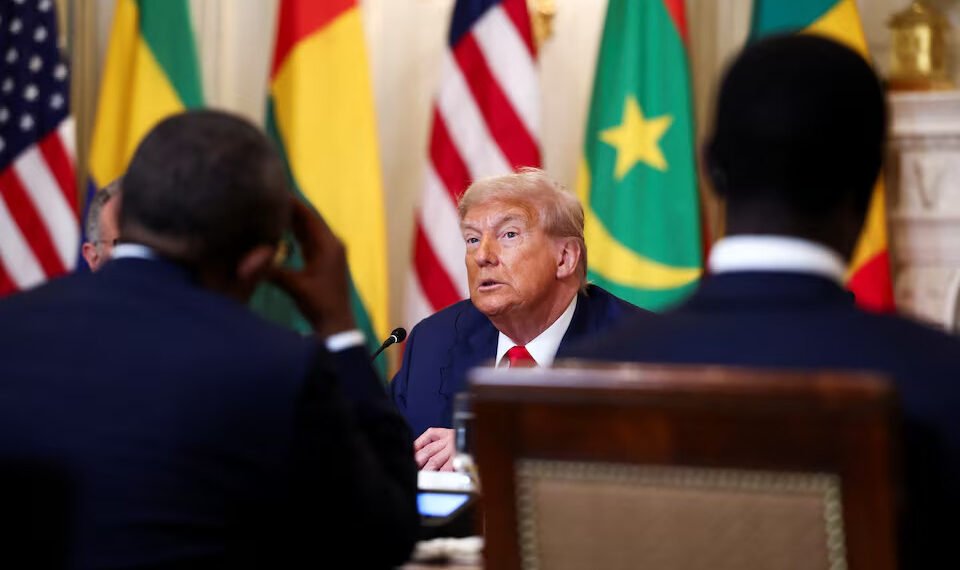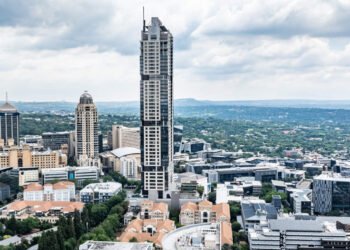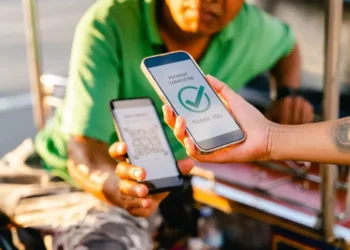In a high-level meeting at the White House, the Trump administration appealed to five African presidents to assist in handling migrants deported from the United States, according to two officials familiar with the closed-door discussions.
The plan, presented to the presidents of Liberia, Senegal, Guinea-Bissau, Mauritania, and Gabon, involves receiving third-country nationals who are facing deportation from the U.S., especially in cases where deportation to their home countries is delayed or disputed. A U.S. official and a Liberian official, both speaking on condition of anonymity, confirmed that the migrant relocation plan was a key agenda item during the talks.
The proposal is part of President Donald Trump’s broader effort to accelerate deportations and resolve ongoing legal and logistical hurdles in sending migrants back to their countries of origin. Since returning to the White House in January, Trump has adopted an aggressive stance on immigration enforcement, pushing for new pathways to remove migrants, including transferring them to third countries as temporary hosts.
On Saturday, eight migrants from countries including Cuba, Laos, Mexico, Myanmar, Sudan, and Vietnam arrived in South Sudan after losing a legal challenge to stop their transfer. This case appears to be an early instance of the policy in action.
A leaked State Department document, reportedly sent to the five African governments ahead of the meeting, outlined the terms of the proposed arrangement. The document called on the receiving nations to facilitate the “dignified, safe, and timely transfer from the United States” of migrants who are not their nationals. The hosting countries would agree not to repatriate these individuals “to their home country or country of former habitual residence until a final decision has been made” on their U.S. asylum claims.
Although the U.S. official said Liberia was “preparing to accommodate” such an arrangement, it remains unclear whether Liberian President Joseph Boakai gave formal approval. The Liberian official confirmed the deportation scheme was a major topic but offered no specifics on the government’s stance.

Trump Briefed Five African Leaders at the White House
In public remarks during the meeting, President Trump highlighted a shift in U.S. policy toward Africa, emphasizing trade partnerships over traditional aid models. “I hope we can bring down the high rates of people overstaying visas, and also make progress on the safe third country agreements,” he stated.
President Trump was joined by Massad Boulos, his senior adviser for African affairs, and Stephen Miller, known for his hardline immigration stance. The White House meeting underscores a growing trend in U.S. immigration policy of outsourcing migration challenges to partner nations through bilateral or multilateral agreements.

The latest strategy comes amid a broader enforcement campaign. In 2025 alone, more than 158,000 undocumented migrants were apprehended in the U.S., with a notable emphasis on criminal offenders.
According to administration sources, deportation efforts have especially targeted violent gang affiliates, including members of MS-13 and Venezuela’s Tren de Aragua. Some of the most dangerous individuals have been detained at Guantanamo Bay or repatriated to high-security facilities like El Salvador’s Terrorism Confinement Center.
To support these intensified efforts, the administration has expanded its collaboration with state and local law enforcement under the 287(g) program, enabling local officers to carry out federal immigration duties. Additionally, physical border barriers and surveillance technologies continue to be deployed to limit illegal crossings.
Despite these aggressive tactics, public sentiment remains sharply divided. While many Americans support tougher deportation policies and border security enhancements, criticism has mounted over the administration’s humanitarian record and the logistical strains faced by immigration courts and border agents.
As the Trump administration doubles down on deterrence and enforcement, its appeal to African leaders for third-country hosting may signal a new chapter in the global politics of migration, particularly how migrants are handled in the process of claiming asylum.
READ ALSO: Lavrov, Rubio Hold Talks On ASEAN Sidelines























